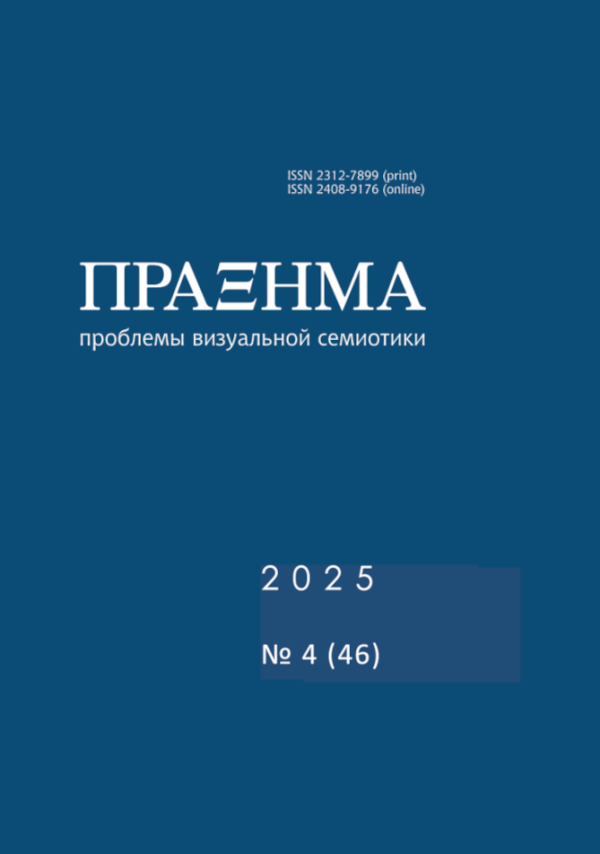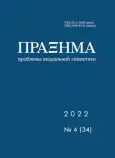ТЕРМИНОЛОГИЧЕСКОЕ ПЛАНИРОВАНИЕ В КОНТЕКСТЕ СМАРТ-ОБРАЗОВАНИЯ: РОЛЬ КОНЦЕПТА КАК ОДНОГО ИЗ СПОСОБОВ ВИЗУАЛИЗАЦИИ ЗНАНИЯ
- Авторы: Ардашкин И.Б.1, Нетесова М.В.1
-
Учреждения:
- Национальный исследовательский Томский политехнический университет
- Выпуск: № 4 (2022)
- Страницы: 28-62
- Раздел: СТАТЬИ
- URL: https://journal-vniispk.ru/2312-7899/article/view/269527
- DOI: https://doi.org/10.23951/2312-7899-2022-4-28-62
- ID: 269527
Цитировать
Полный текст
Аннотация
Ключевые слова
Об авторах
Игорь Борисович Ардашкин
Национальный исследовательский Томский политехнический университет
Email: ibardashkun@tpu.ru
доктор философских наук, доцент, профессор отделения социально-гуманитарных наук Ул. Ленина 30, Томск, Россия, 634050
Мария Витальевна Нетесова
Национальный исследовательский Томский политехнический университет
Email: sonimari2005@mail.ru
аспирант отделения социально-гуманитарных наук, старший преподаватель учебно-научного центра «организация и технологии высшего профессионального образования» Ул. Ленина, д. 30, Томск, Россия, 634050
Список литературы
- Ардашкин 2014 – Ардашкин И. Б. Ценности современного образования как фактор развития: мировые тенденции и перспективы России // Вестник Томского государственного университета. 2014. № 384. С. 60–67.
- Ардашкин, Нетесова 2019 – Ардашкин И. Б., Нетесова М. В. Смарт-образование как новая парадигма образования: pro et contra // Современные технологии, экономика и образование: сборник материалов Всероссийской научно-методической конференции. Томск: Нац. исслед. Том. политехн. ун-т, 2019. С. 103–104.
- Ардашкин, Суровцев 2020 – Ардашкин И. Б., Суровцев В. А. Смарт-образование как новая парадигма образования: pro et contra // Вестник Томского государственного университета. Философия. Социология. Политология. 2020. № 54. С. 51–61.
- Князева 2020 – Князева Е. Н. Визуальные образы на службе когнитивной науки // ΠΡΑΞΗΜΑ. Проблемы визуальной семиотики. 2020. № 1 (23). С. 58–75.
- Кошлаков, Швырков 2020 – Кошлаков Д. М., Швырков А. И. Концепт и философия науки // Эпистемология и философия науки. 2020. Т. 57, № 2. С. 124–141.
- Мелик-Гайказян 1997 – Мелик-Гайказян И. В. Информационные процессы и реальность. М.: Физматлит. 1997.
- Мелик-Гайказян 2008 – Мелик-Гайказян И. В. Моделирование образовательных систем: исследовательская программа // Высшее образование в России. 2008. № 9. С. 89–94.
- Мелик-Гайказян 2014 – Мелик-Гайказян И. В. Семиотика образования или «Ключи» и «Отмычки» к моделированию образовательных систем // Идеи и идеалы. 2014. Т. 1, № 4 (22). С. 14–27.
- Мелик-Гайказян и др. 2019 – Мелик-Гайказян И. В., Первушина Н. А., Смышляеева Л. Г. Исследовательская программа педагогической биоэтики в условиях неопределенности социальных сценариев // Вестник Томского государственного университета. 2019. № 448. С. 83–90.
- Мироненко 2018 – Мироненко Е. С. Задачи и перспективы внедрения смарт-технологий в образовательный процесс // Социальное пространство. 2018. № 1 (13). URL: http://sa.vscc.ac.ru/article/2549/full (дата обращения: 26.01.2019).
- Национальный стандарт Российской Федерации. Терминологическая политика. Разработка и внедрение 2020 – Национальный стандарт Российской Федерации. Терминологическая политика. Разработка и внедрение. М., 2020. URL: http://docs.cntd.ru/document/1200104406 (дата обращения: 21.09.2021).
- Ращупкина 2016 – Ращупкина А. С. Формирование системы СМАРТобразования вуза как новейшего вида обучения // Технологическая перспектива в рамках Евразийского пространства: новые рынки и точки экономического роста: материалы 2-й Международной научной конференции (20–22 октября 2016). СПб.: Астерион, 2016. С. 378–383.
- Суржанская 2011 – Суржанская Ю. В. Концепт как философское понятие // Вестник Томского государственного университета. Философия. Социология. Политология. 2011. № 2 (14). С. 70–78.
- Ardashkin 2003 – Ardashkin I. B. Scientific problem in modern cognition process // Proceedings of the 9th International Scientific and Practical Conference of Students, Post-graduates and Young Scientists – Modern Techniques and Technologies, MTT’ 2003. Tomsk, 2003. 1438221. P. 260–262.
- Ardashkin et al. 2021 – Ardashkin I. B., Borovinskaya D. N., Surovtsev V. A. The Epistemology of Smart Technologies: Is Smart Epistemology derived from Smart Education? // Education & Pedagogy Journal. 2021. Vol. 1 (1). P. 21–35. doi: 10.23951/2782-2575-2021-1-21-35
- Budin 2001 – Budin G. A critical evaluation of the state-of-the-art of terminology theory // Terminology Science & Research. 2001. № 12 (1-2). Р. 7–23.
- Busse 2012 – Busse D. Frame-Semantik: Ein Kompendium. Berlin ; Boston: De Gruyter, 2012. 888 р.
- Cabré 2003 – Cabré Castellví M. T. Theories of terminology. Their description, prescription and explanation // Terminology. 2003.№ 9 (2). Р. 163–199.
- Faber 2009 – Faber Benítez P. The Cognitive Shift In Terminology And Specialized Translation // Revistas – MonTI. 2009. № 1: A (Self-)Critical Perspective of Translation Theories. Р. 107–134. URL: http://www.journals4free.com/link.jsp?l=31174190&al (accessed: 16.10.2021).
- Faber 2015 – Faber P. Frame as framework for terminology // Handbook of Terminology / H. J. Kockaert, F. Steurs (eds.). Amsterdam ; Philadelphia: John Benjamins, 2015. Vol. 1. Р. 14–33.
- Faber, Cabezas-García 2019 – Faber P., Cabezas-García M. Specialized knowledge dynamics: From cognition to culture-bound terminology // Research in Language. 2019. Vol. 17 (2). Р. 197–211.
- Felber 1989 – Felber H. Terminology Manual. Wien: Infoterm, 1989. 234 р.
- Kerremans, Desmeytere, Temmerman, Wille 2005 – Kerremans K., Desmeytere I., Temmerman R., Wille P. Application-oriented terminography in financial forensics // Terminology. 2005. № 11 (1). Р. 83–106.
- Manerko 2014 – Manerko L. Concept understanding in cognitive linguistics and cognitive terminology science // Languages for Special Purposes in a Multilingual, Transcultural World: Proceedings of the 19th European Symposium on Languages for Special Purposes, 8–10 July 2013, Vienna, Austria / G. Budin, V. Lušicky (eds.). Vienna: University of Vienna, 2014. Р. 471–483.
- Picht 2011 – Picht H. The Science of Terminology: History and Evolution // Terminologija. 2011. № 18. P. 6–26.
- Temmerman 2000 – Temmerman R. Тowards New Ways of Terminology Description. Amsterdam ; Philadelphia: John Benjamins, 2000. 258 р.
- Temmerman., Kerremans 2003 – Temmerman R., Kerremans K. Termontography: ontology building and the sociocognitive approach to terminology description // Proceedings of CIL 17. 2003. Vol. 7. P. 1–10. URL: https://www.academia.edu/851013/Termontography_Ontology_building_and_the_sociocognitive_approach _to_terminology_description (accessed: 17.10.2021).
- Wuster 1979 – Wuster E. Introduction to the general theory of terminology and terminological lexicography. Wien: Springer, 1979. 176 p.
Дополнительные файлы







